Creating Brand Value through Administration: Small Details, Lasting Impressions - NSYSU Alumni Enterprise Shares Strategic Insights on Reputation and Administration Excellence
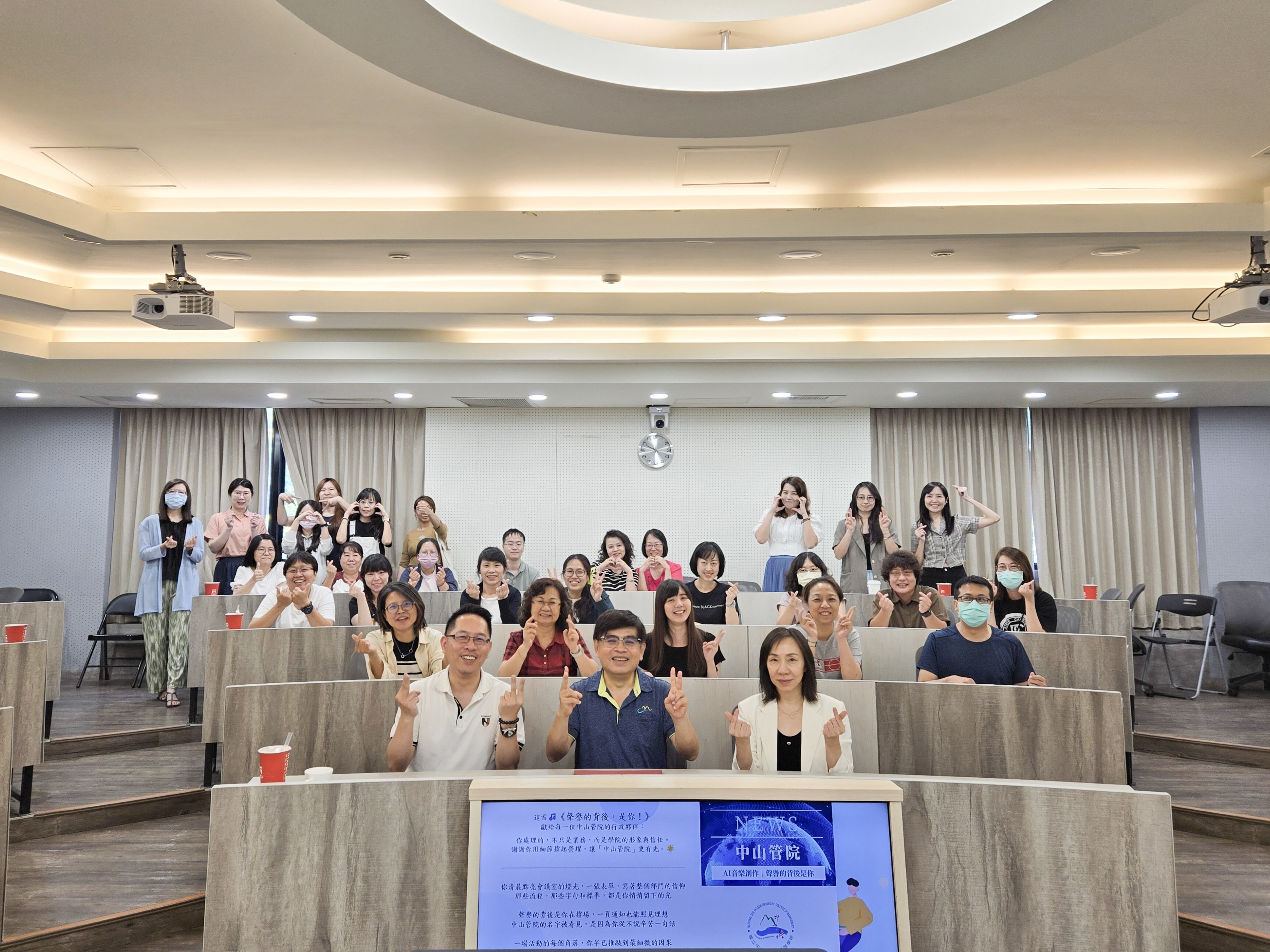
Behind the smooth operation of every university lies the dedication of its administrative staff. Often working quietly out of the spotlight, they are the driving force that sustains the daily functions of campus life. From course scheduling and student services to the implementation of academic initiatives, the professionalism and commitment of administrators form the backbone of institutional success.
Recognizing the importance of administrative growth, the College of Management at National Sun Yat-sen University hosted a special lecture this summer, featuring two distinguished alumni industry leaders: Ms. Tang Yu, General Manager of BDM Media, and Mr. Chen Ming-shuo, General Manager of an online media enterprise. Invited by Dean Hao-Chieh Lin, they delivered a talk entitled “Strategic Thinking x Administrative Practice: What You Manage Is Not Just Business, but Reputation.” The session encouraged staff to broaden their perspectives and reflect on their daily responsibilities from the lens of media and branding.
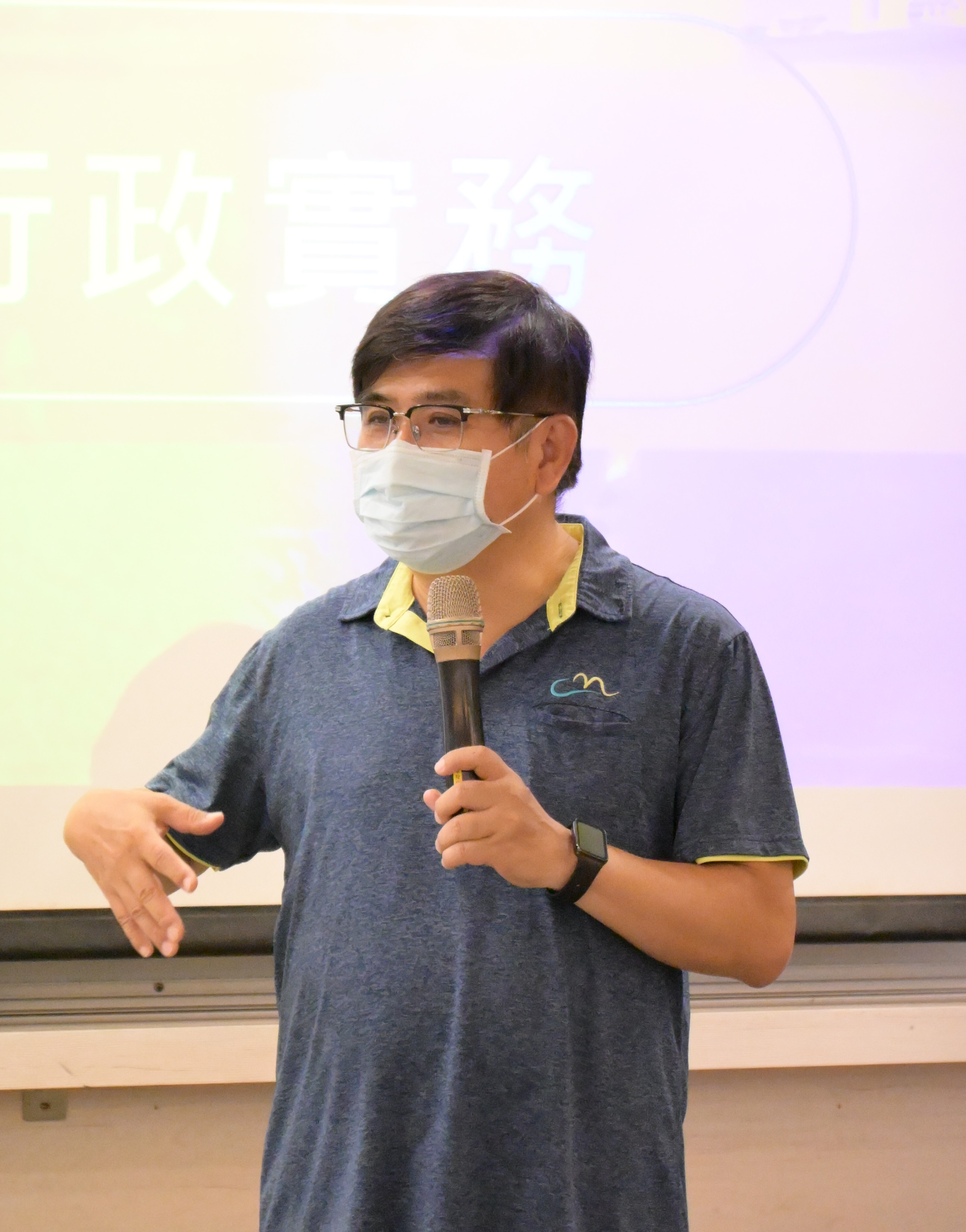
Founded in 1992 by NSYSU CSEMBA alumnus and Chairman Chen Yu-chang, BDM Media has grown into a multifaceted advertising agency encompassing television, online platforms, celebrity endorsements, and integrated media campaigns. Today, it plays a significant role in shaping brand and entertainment industries across the Taiwan Strait. This return to campus by an alumni enterprise not only imparted valuable professional insights but also exemplified NSYSU’s spirit of a positive cycle—“from campus to society, and from society back to campus.”
In her presentation, Ms. Tang drew from real-world cases in the film and advertising industry, emphasizing that dynamic audiovisual content has become the mainstream of communication. She explained, “A high-quality advertisement relies on three essential elements—creative scripting, audience engagement, and professional execution. From pre-production planning, filming, and editing to color grading, subtitling, special effects, and voiceovers, every step is indispensable.”
She further illustrated how successful campaigns—such as collaborations with lingerie and spirits brands featuring celebrity Guan Xiaotong and cheerleader Ahn Ji-hyun—depended not solely on star power but on the synergy of a dedicated creative team. “A complete advertisement,” she stressed, “is the product of countless contributions in creativity, resources, and teamwork.”
Drawing a parallel, she noted that hosting a university event also requires seamless cooperation among numerous staff members to ensure both quality and efficiency. Each individual plays a crucial role, and together, teamwork elevates professionalism and institutional reputation. “Sustainable brand management,” she concluded, “relies on continuous learning, adaptability, and the ability to transform challenges into opportunities with a positive mindset.”
Mr. Chen then shifted the focus to everyday administrative practice, underscoring that administration is not merely about execution but about managing reputation. “Every task you handle reflects not just a process but the image of your unit,” he remarked.
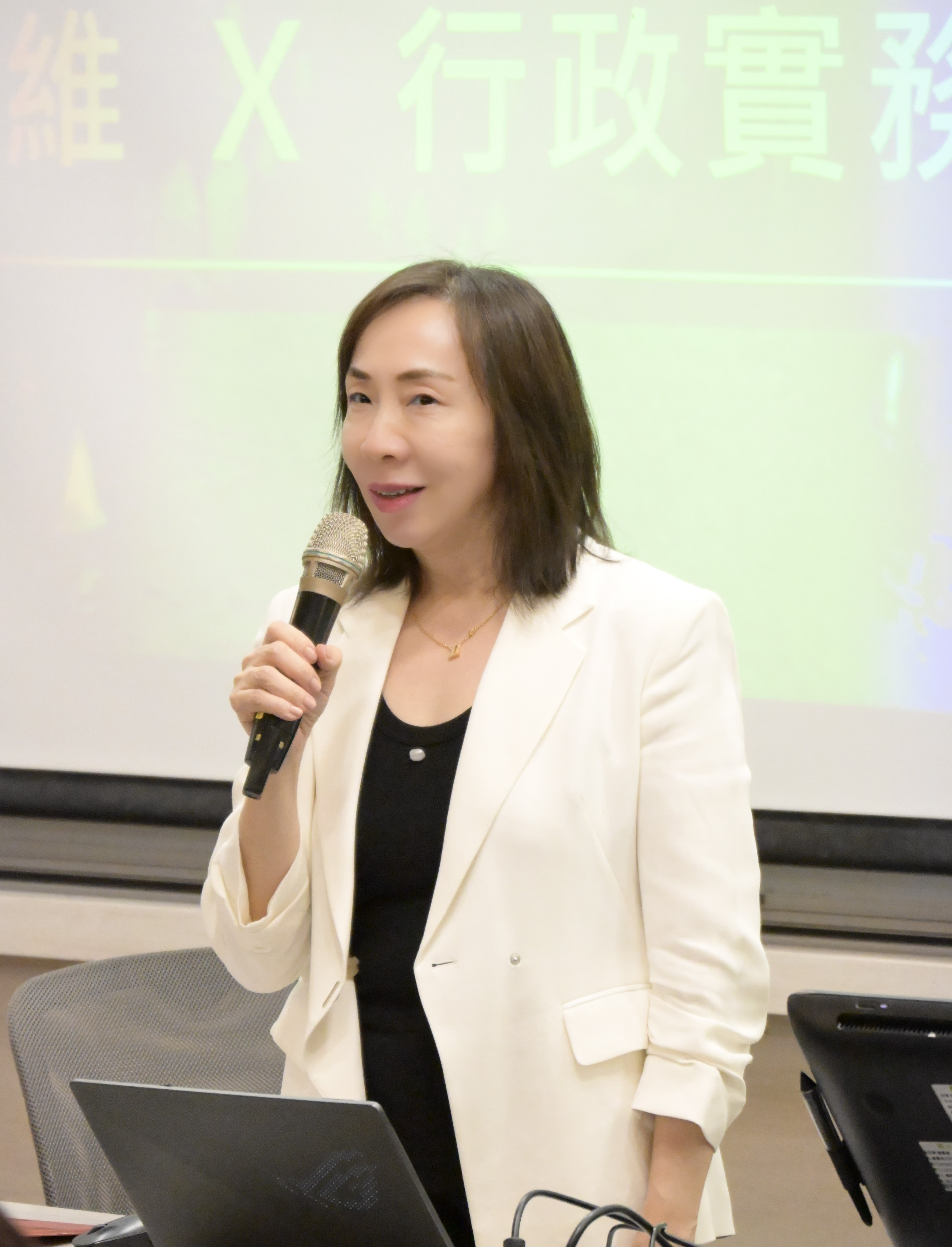
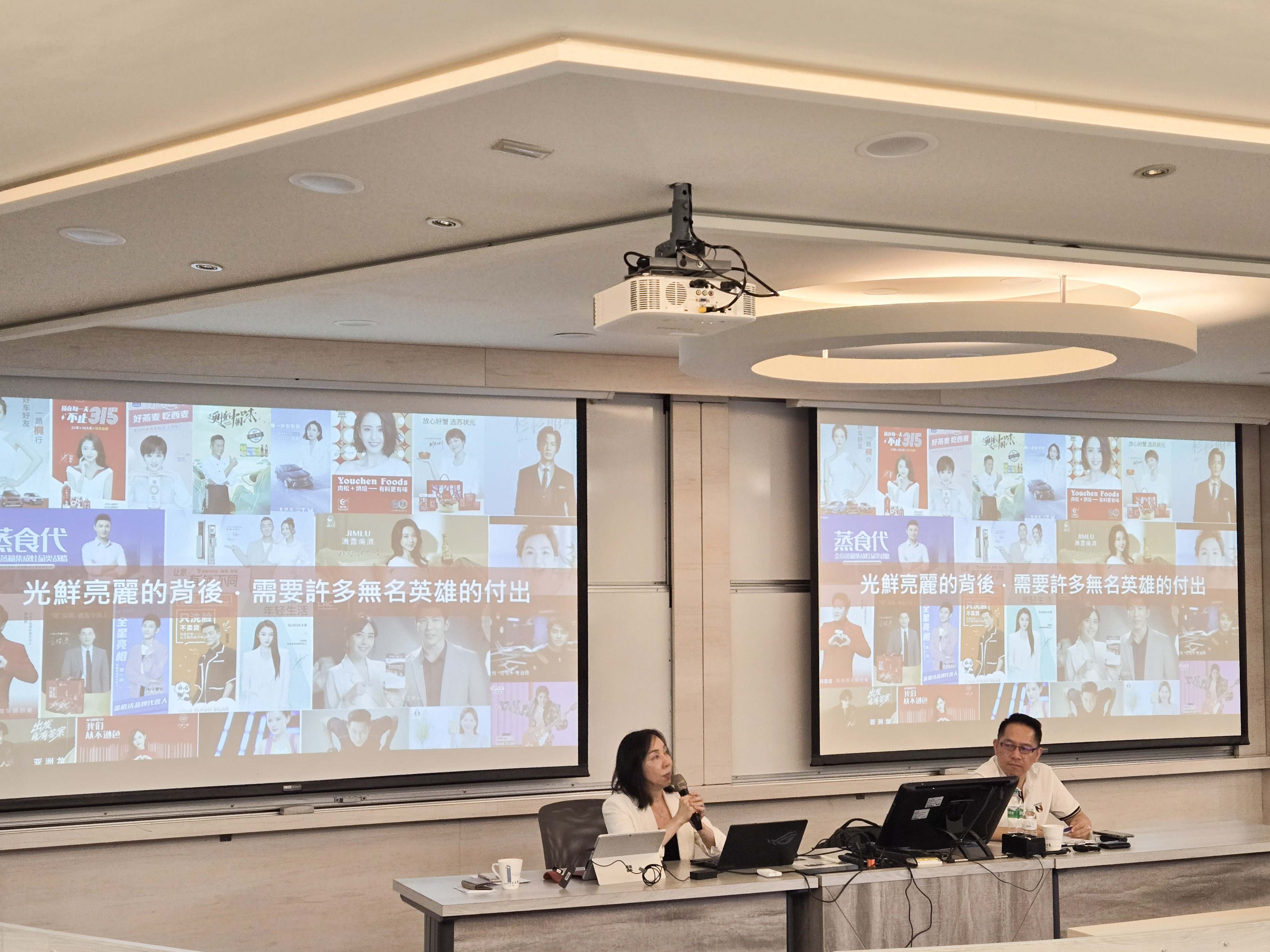
He illustrated this with examples: in a standard hotel, housekeeping staff fulfill their duties by keeping rooms clean; in a five-star hotel, however, service goes beyond expectations. A simple gesture—like replacing a folded page in a guest’s book with a thoughtfully placed bookmark—creates an emotional connection far exceeding the customer’s expectations. Similarly, Michelin-starred restaurants stand out not just for their cuisine but for delivering a complete, five-senses experience through attention to detail.
Bringing this perspective back to administration, Mr. Chen encouraged staff to move beyond a task-oriented mindset and consider the strategic impact of their work. For instance, a meeting notice could be more than a logistical reminder—by including a map and a kind suggestion to bring a jacket due to strong air-conditioning, administrators communicate genuine care and foresight.
“Administrative work,” he explained, “can be viewed in two ways: completing tasks is self-serving, but creating value is altruistic. When we think from others’ perspectives—solving problems, making their experiences smoother and more enjoyable—we find that our jobs are no longer about handling trivial matters, but about making a meaningful difference. It is this spirit of altruism that brings both fulfillment and joy to our daily work.”
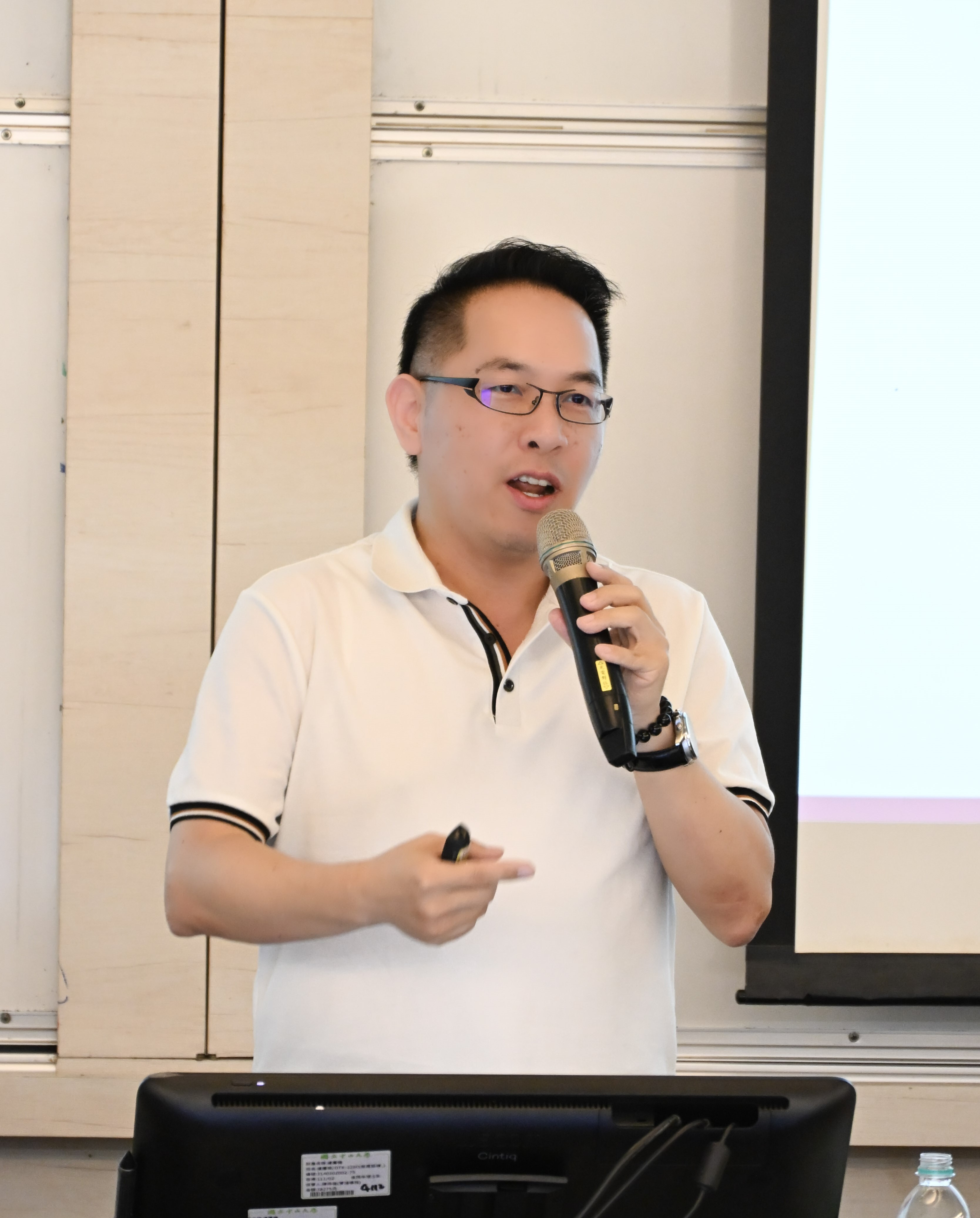
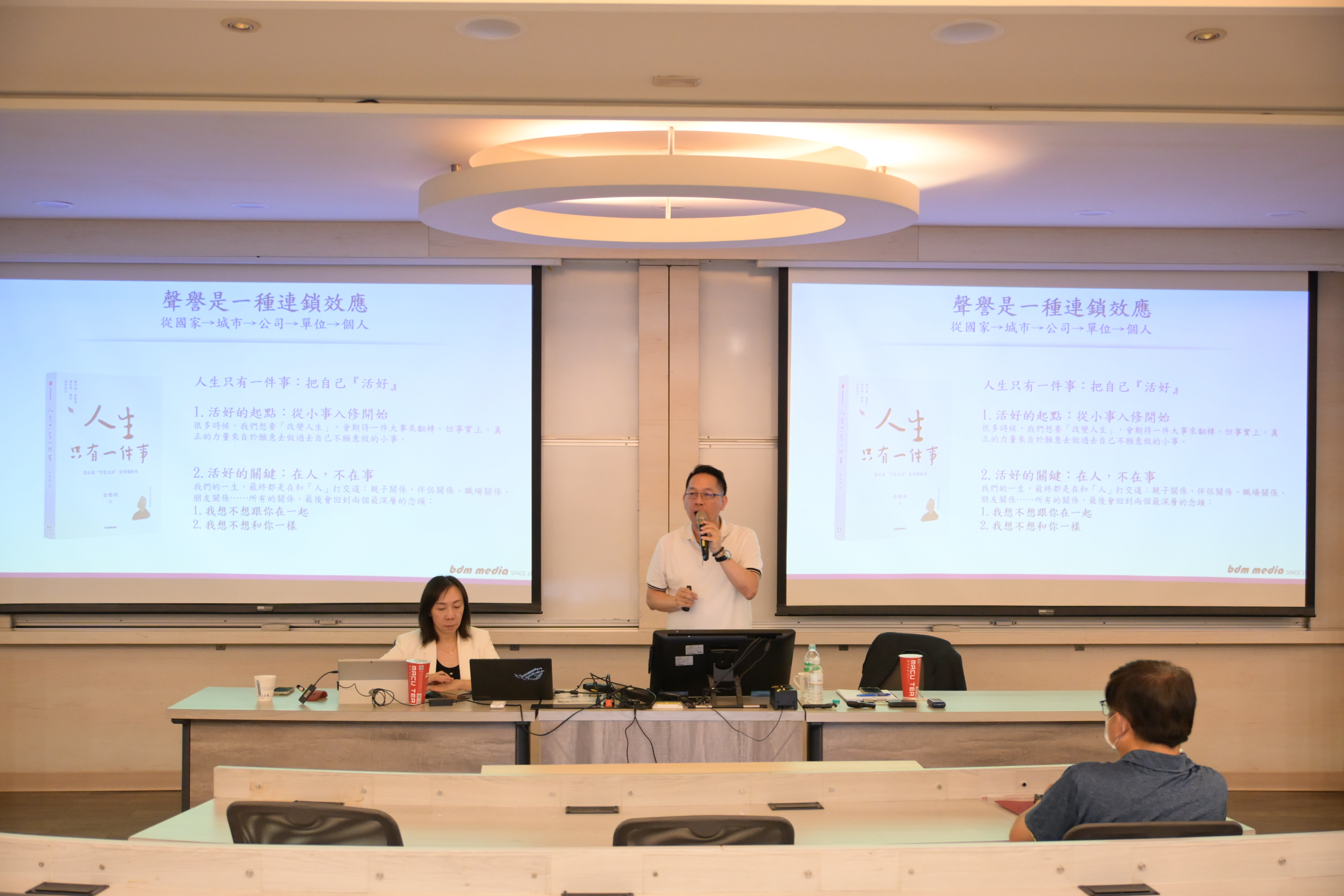
He also highlighted the importance of effective administrative communication, emphasizing how to bring warmth and empathy into what is often perceived as cold, procedural work. The key, he noted, is to first “tune in” to the same frequency as others, rather than merely trying to persuade them from one’s own perspective.
He encouraged constant reflection and refinement of communication practices: Has the other party truly understood the message? Did they fully receive it? Could it be delivered more clearly and with greater relevance? This continuous adjustment not only enhances individual professionalism but also strengthens the overall brand image of the College of Management. Although administrative work often takes place behind the scenes, it plays a pivotal role in shaping the reputation and value of the institution.
Drawing on valuable insights from industry, College staff were reminded once again of the principle that “details shape the bigger picture.” Looking ahead, the College of Management will continue to advance professional training and foster collaborations with alumni enterprises, empowering its administrative team to exert meaningful influence in their roles and collectively build a brand image that is both professional and people-centered.




